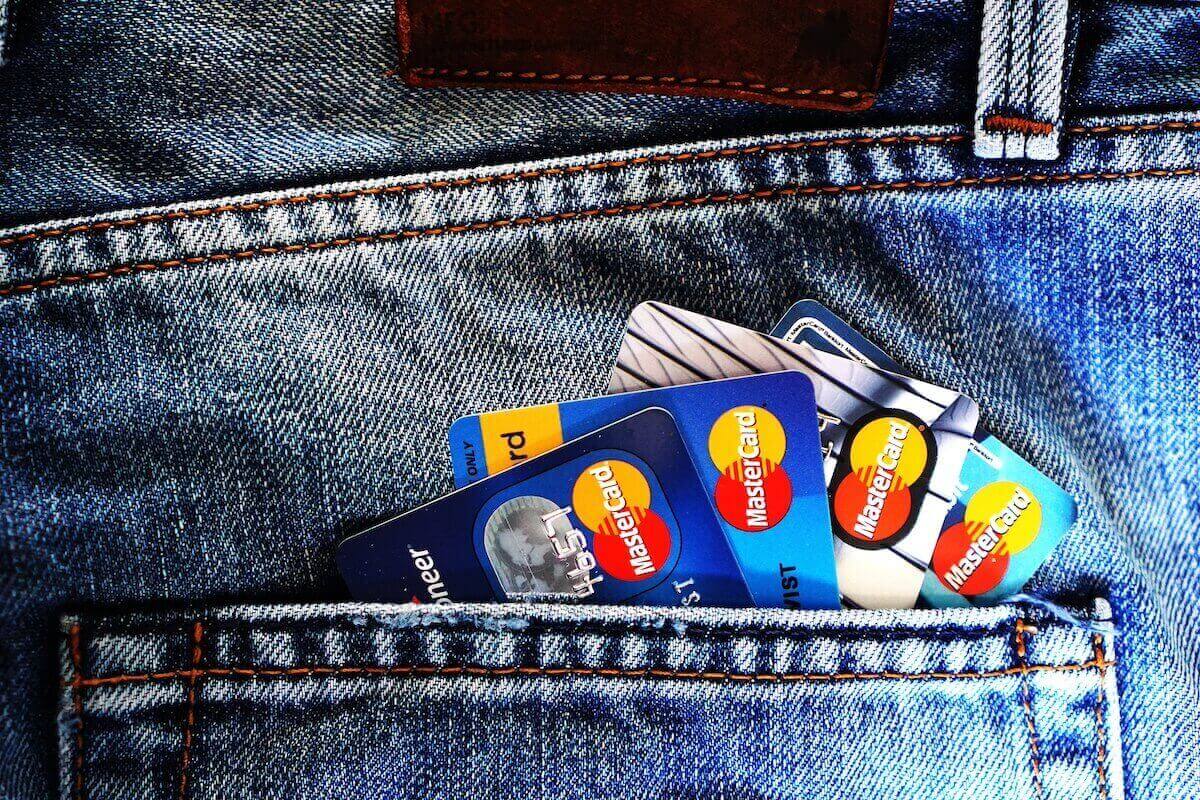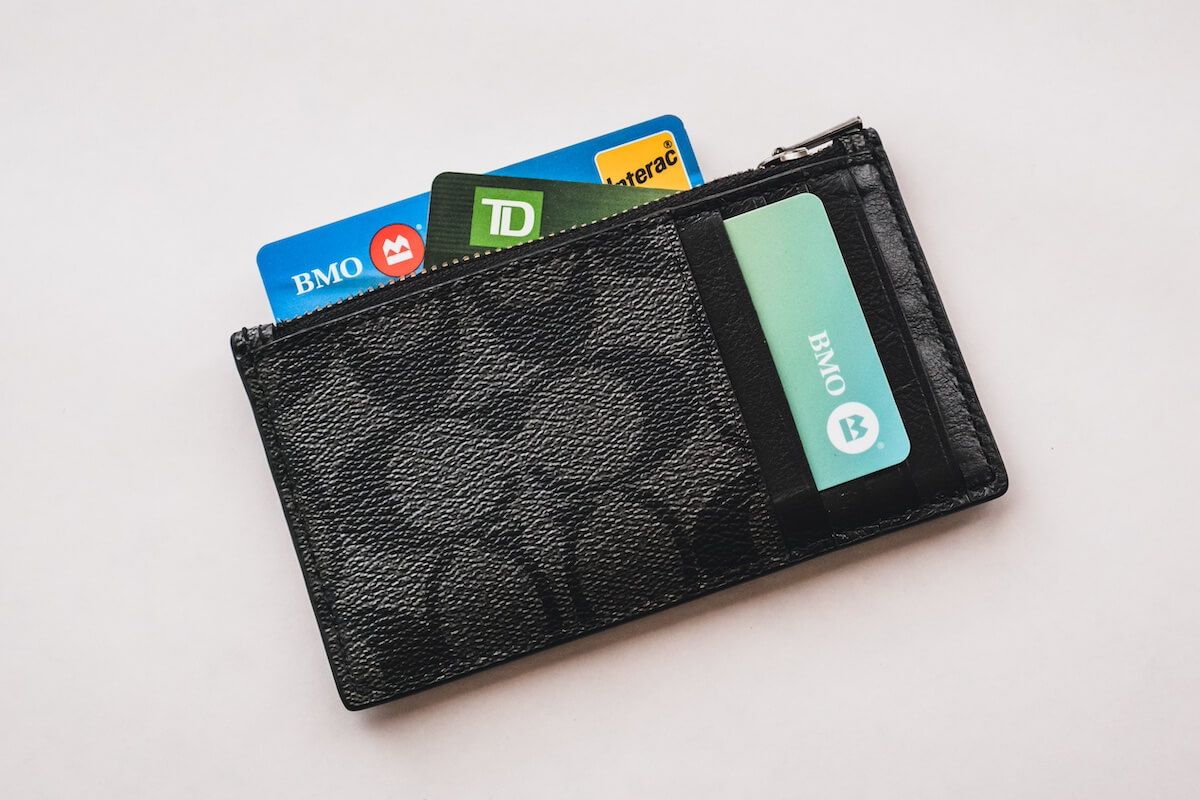Advertiser Disclosure
Last update: March 19, 2024
8 minutes read
How Old Do You Have to Be to Get a Credit Card?
Learn the age rules for owning a credit card, explore young adult credit options, and kick-start your financial journey effectively. Discover when you can start building your credit and financial independence.

By Brian Flaherty, B.A. Economics
Edited by Rachel Lauren, B.A. in Business and Political Economy
Learn more about our editorial standards


Are you in your late teens, thinking about getting your first piece of plastic - a credit card? Or are you a concerned parent doing your homework on credit card rules for young adults? Either way, we need to answer the burning question: how old do you have to be to get a credit card?
Here's the short answer: You have to be at least 18 years old to apply for a credit card in the U.S. This post explores the ins and outs of this law, along with exceptions to the rule, and options available for the youngsters looking to build their credit.

Key takeaways
- You have to be at least 18 years old to apply for a credit card in the U.S.
- If you're under 21, you need some independent income or a cosigner to get a credit card
- Credit card issuers heavily consider your credit score and income even if you're 21+
How old do you have to be to get a credit card?
According to U.S. federal law, specifically, the Credit CARD Act of 2009, a consumer can apply for a credit card at 18 years old. But, it's not as simple as hitting the magical number 18. You see, there are certain requirements set by the law that play a key role before you can get a credit card, even if you’re over 18.
What does the law say about getting a credit card at 18?
Not only do you need to be 18, but the law also requires applicants to either have some independent income source or a cosigner. In simpler words:
- You need to make enough money on your own to make the minimum payments or,
- Have a cosigner. This person guarantees to pay your credit card balance if you can't.
What happens if you're under 21 and want a credit card?
Well, here's where it gets tricky. If you're under 21 and don't meet the criteria mentioned above (i.e., you don't have an independent income), here’s what you can do:
- Authorized user: One of your best moves could be to become an authorized user on a parent's or another person's credit card account. This person should preferably have a good credit history (because their credit behavior will now impact yours). As an authorized user, you can use the card without being responsible for making payments. Plus, this status will also help in your credit-building journey, a process known as credit piggybacking. It can in some cases hurt your credit if the person isn’t responsible with the credit card, so make sure you trust their financial behavior.
- Cosigner: Alternatively, if you're at least 18, you can apply for a credit card with a cosigner. Again, this person with good credit and income assures to pay your credit card balance if you don't. However, most major card issuers don't allow cosigners these days.
Will you automatically get approved after turning 21?
Here's a dose of reality: Being 21 or above doesn't give you automatic approval for a credit card. Even though restrictions drop off at 21, approval is not guaranteed. Many credit card issuers weigh in your credit scores and income while considering your application.
So, how can young adults start their credit journey?
So you've just turned 21 and are thinking about establishing your credit profile, despite being a little wet behind the ears credit-wise. Don't worry, there are a few credit card options for you to consider:
- Secured Credit Cards: These cards require an upfront security deposit, usually equal to the credit limit. If you fail to make payments, the deposit protects the issuer. But guess what? You'll get the deposit back when you close or upgrade the account. Secured cards are great for people looking to start building credit.
- Student Credit Cards: Some cards come with benefits for college students. However, you'll generally need some income and at least a fair credit score to get approval.
- Alternative Credit Cards: We've also seen an influx of alternative credit cards in the market lately. They use nontraditional policies to assess your creditworthiness, like cash flow, but you'll still need to meet the income requirements just like traditional credit cards. The key selling point? They don't require deposits.
Are there exceptions to these rules?
Yes! The Credit Card ACT of 2009 allows credit card applications with cosigners, which could be your workaround. However, keep in mind - most major card issuers don't allow co-signers. But hey, don't lose hope, you may have better luck with smaller banks and credit unions, who often offer much better interest rates on credit cards anyway.
What are credit unions? They are financial not-for-profits where people in your community or state can pool and borrow money - they work just like a bank but with lower fees/rates and more of a community feel.
Do’s and don'ts of getting your first credit card
Starting your credit journey is an exciting step. But like any journey, it comes with do’s and don'ts. Sticking to these will help protect you from the risks of debt and bad credit. Let's take a closer look:
Do
Start with a secured credit card or as an authorized user
Always pay your bills on time
Stick to a budget
Check your credit score regularly
Don't
Jump into multiple credit cards at once
Ignore late payment dues
Overspend on your credit card
Apply for a credit card without understanding its terms
Advantages and disadvantages of getting a credit card early
While getting your first credit card is a fundamental step towards financial independence, like most things, it comes with its own sets of advantages and disadvantages.
Advantages of getting a credit card early
- Establishing a strong credit history for future financial prospects
- Providing the flexibility to manage emergency expenses
- Earning rewards and cashback on spending
Disadvantages of getting a credit card early
- The risk of falling into debt due to mismanagement of payments
- The potential to damage your credit score if not handled responsibly
- Possibility of overspending, leading to significant financial stress later on
How TuitionHero can help
Getting your first credit card can seem like a minefield. That's where we step in. Our mission at TuitionHero is to simplify finance for you, whether you're a student just stepping into the classroom of credit building or a parent juggling college funds and credit scores.
From offering guidance on student loans and scholarships to providing advice on handling credit card offers, we're here to back you up every step of the way.
And get this - beyond helping with credit card choices, we also help you with student loan refinancing and FAFSA to secure better financial aid. With TuitionHero on your side, you'll get the reliable financial education you need, so you're never left scratching your head over college finance matters.
Final thoughts
So there you have it – the ABCs of when and how to start your credit card journey. Remember, being young doesn't mean you're at a disadvantage. With a bit of financial knowledge and habits in place, you can lay a solid foundation for your credit history. At TuitionHero, we're here to help you make smart decisions about credit cards and everything else finance-related.
Sources
Frequently asked questions (FAQ)
Check out our FAQ below for quick answers to the most common questions.
Secured credit cards, student credit cards, making full payments on time, and being an authorized user on a credit card with healthy credit activity are all great ways to build your credit as a young adult.
Start by ensuring you meet the minimum income and age requirements. Building a good credit history by paying your bills on time, keeping your credit utilization below 30%, and fixing any errors in your credit report can boost your chances considerably.
With consistent and responsible credit habits, it's possible to establish a decent credit score within six months to a year of opening a credit card. Timely payments, low credit utilization, and a mix of credit types contribute to a good score.
A good credit score opens doors to financial freedom - from being approved for apartments and loans, to securing lower interest rates on credit products, and even favorable terms on insurance policies. Plus, if student loans are part of your college plan, lenders may be more willing to grant loans to students with a good credit score.
Author

Brian Flaherty
Brian is a graduate of the University of Virginia where he earned a B.A. in Economics. After graduation, Brian spent four years working working at a wealth management firm advising high-net-worth investors and institutions. During his time there, he passed the rigorous Series 65 exam and rose to a high-level strategy position.
Editor

Rachel Lauren
Rachel Lauren is the co-founder and COO of Debbie, a tech startup that offers an app to help people pay off their credit card debt for good through rewards and behavioral psychology. She was previously a venture capital investor at BDMI, as well as an equity research analyst at Credit Suisse.
At TuitionHero, we're not just passionate about our work - we take immense pride in it. Our dedicated team of writers diligently follows strict editorial standards, ensuring that every piece of content we publish is accurate, current, and highly valuable. We don't just strive for quality; we aim for excellence.
Related posts
While you're at it, here are some other college finance-related blog posts you might be interested in.
Shop and compare student financing options - 100% free!

Always free, always fast
TuitionHero is 100% free to use. Here, you can instantly view and compare multiple top lenders side-by-side.

Won’t affect credit score
Don’t worry – checking your rates with TuitionHero never impacts your credit score!

Safe and secure
We take your information's security seriously. We apply industry best practices to ensure your data is safe.
Finished scrolling? Start saving & find your private student loan rate today





